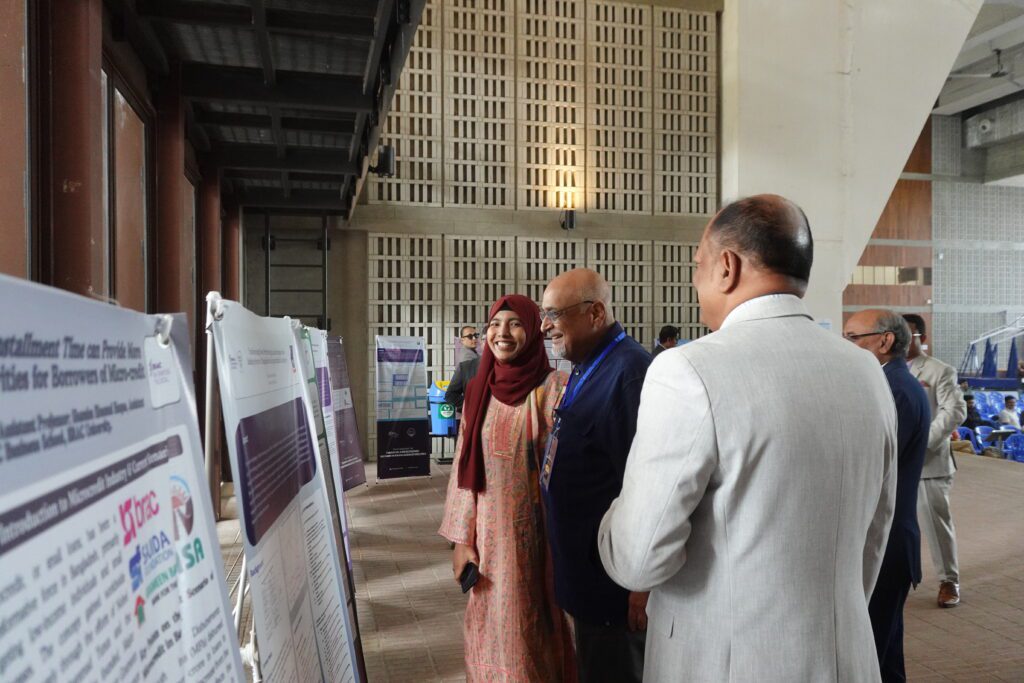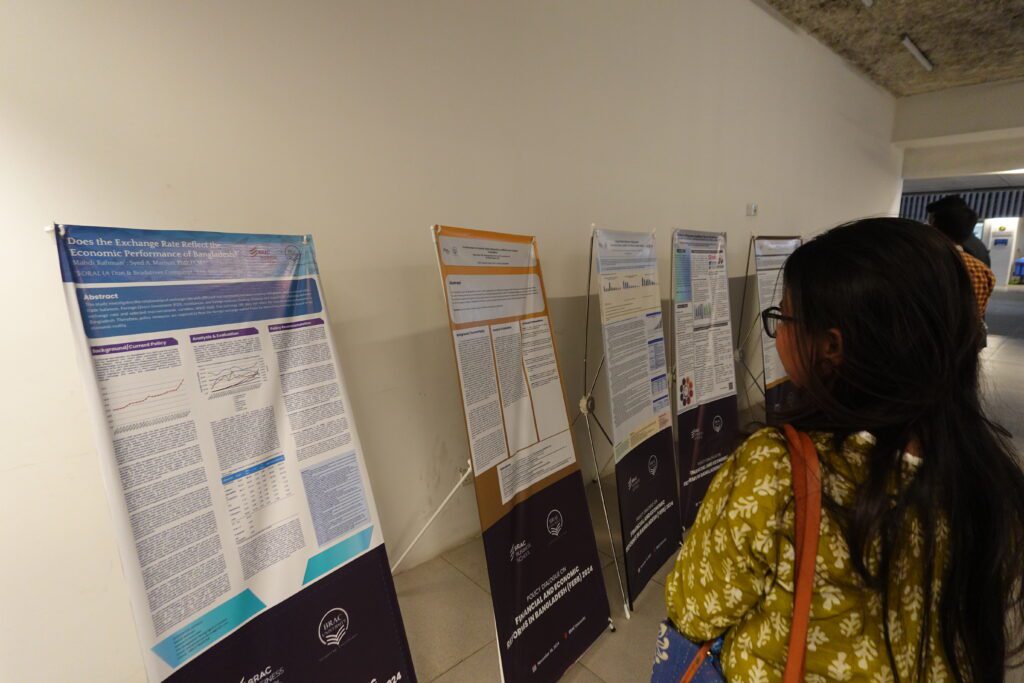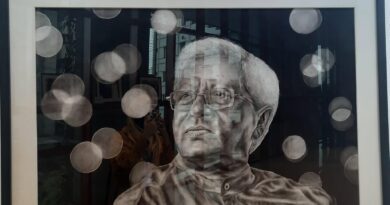Policy dialogue sessions on Financial and Economic Reforms in Bangladesh
On November 16th, BRAC Business School (BBS) hosted policy dialogue sessions on “Financial and Economic Reforms in Bangladesh (FERB)” to address the crisis in our country. Students and scholars alike submitted poster designs on various policies. According to Dr. Wasiqur Rahman Khan (Chairperson, ESS), “This is a timely exercise engaging policymakers, students, and academics together to promote a free exchange of ideas.”
The event began at 11 AM with a plenary session hosted by Dr. Mohammad Mujibul Haq (Associate Dean, BBS). The event’s chief guest was the Honourable Advisor of the interim government’s Ministries of Finance and Science and Technology, Dr. Salehuddin Ahmed. Special guests included the Managing Director and CEO of BRAC Bank PLC, Mr. Selim R.F. Hussain, Commissioner of Bangladesh Securities and Exchange Commission (BSEC) Ms. Farzana Lalarukh, and Dr. Debapriya Bhattarcharya, who is a distinguished fellow and member of the Centre for Policy Dialogue (CPD).
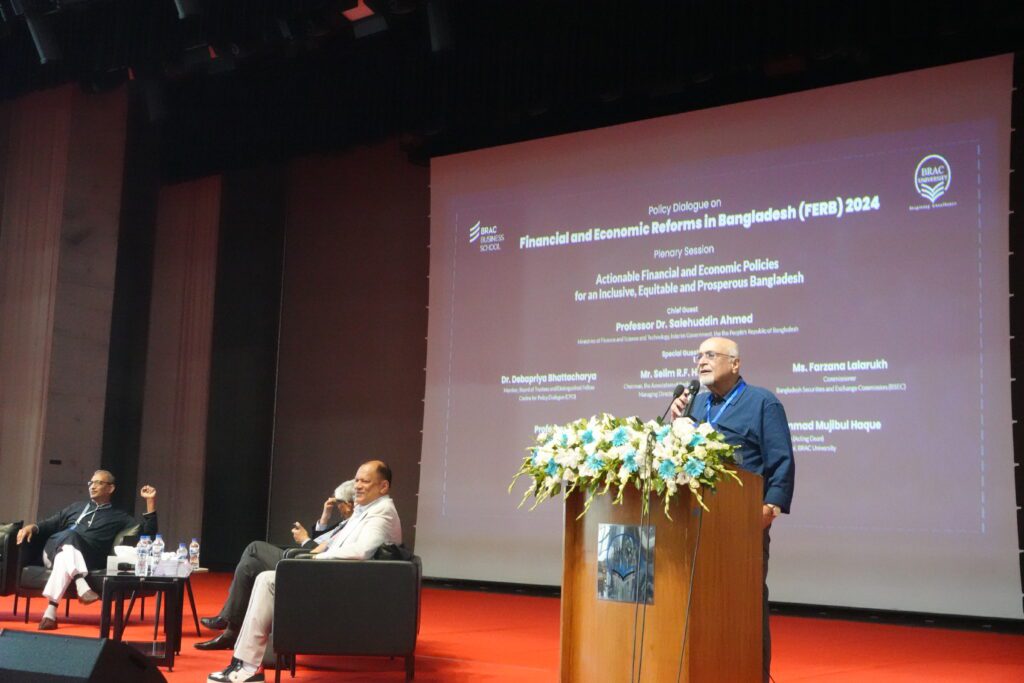
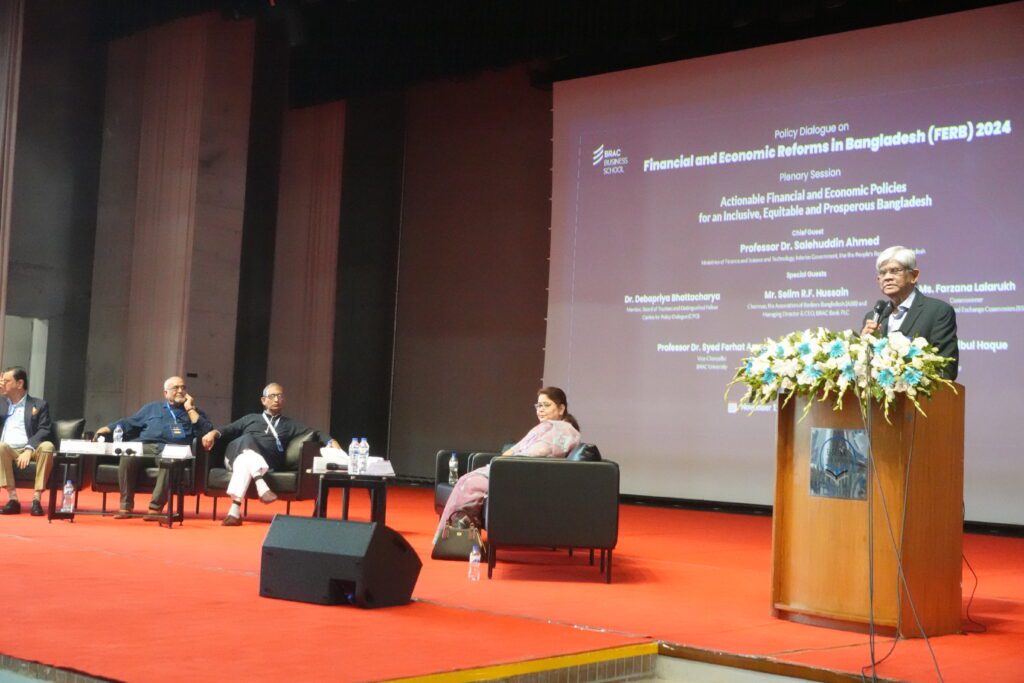
Each started their speech by first recognizing Brac University students’ role in the July Uprising and thanked them for their dedication. Stalwarts in their
respective fields all highlighted the unimaginable looting done by the previous political government, termed as an oligarchy by Dr. Bhattacharya. Impressed by the posters, he assured everyone they would be forwarded to the appropriate people. The guests also talked about the importance of stringent policies, better corporate governance, and able leadership to ensure such crises can be averted in the future. Dr. Ahmed ended his speech by urging students to focus on their studies, terming it the most important investment of their lifetime.
Post lunchtime interlude, four-panel discussions focused on banking and capital market reforms, tackling financial crimes, and creating a functioning financial infrastructure. All the panelists focused on transparency disclosure to ensure proper investment can flow through while simultaneously creating contemporary laws to combat rising economic crimes. They stressed creating fiscal and monetary policies, ensuring effective implementation for impact.
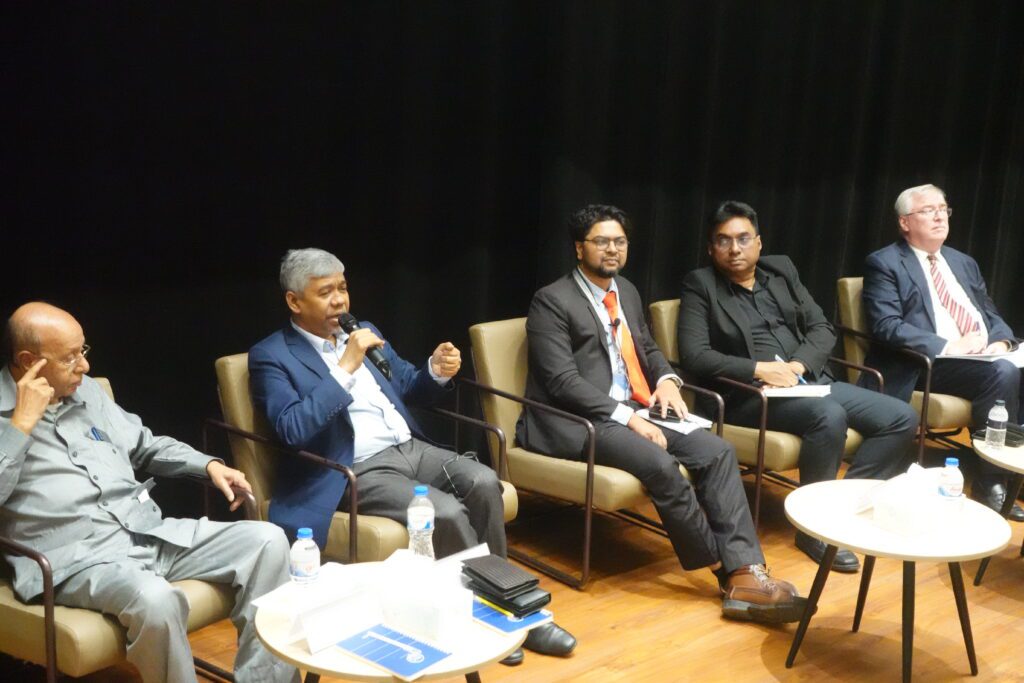
One of the panelists, Mr. Michael Trueblood (USAID’s Economic Growth and Governance Director), stated, “Governance policies must adhere to local context for efficiency.” While answering an audience’s question of how policy implementation can be firmly maintained, Mr. Abdur Rahman Khan (NBR Chairman) said, “Public participation and a political solution is needed to ensure these guidelines are followed through.”
The event ended around 5 p.m. Mr. Sifat Islam Ishty (Senior Lecturer, ESS) feels that “These programs help connect the classroom to real life, creating engaging policies and restoring trust in academia.”
